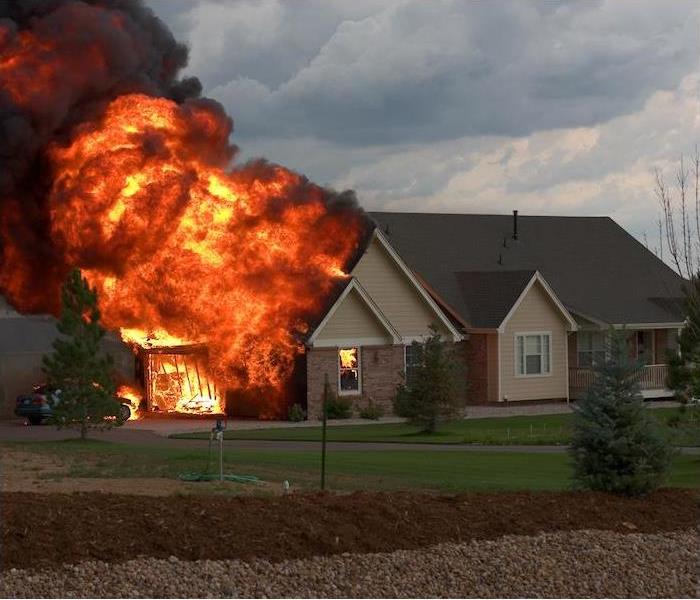Common Causes of House Fires | SERVPRO® of Gwinnett County South
9/24/2019 (Permalink)
It is highly advisable for homeowners to have working smoke alarms in every room of the house, but there are additional ways to be vigilant about fire prevention.
A variety of events can cause house fires, from the most obvious fire hazard to the least conspicuous household supply. It is important to know the risks so you can prevent them and keep your home safe from fires.
While the reasons to be vigilant about fire protection are numerous, many people do not realize just how often they occur. According to the NFPA, a home fire starts every 24 seconds.
Cooking incidents make up over half of reported fires, but many other things around the home can be a cause.
There are many causes of house fires that most people would not even think of. Understanding the everyday occurrences that lead to fires and how to prevent them can go a long way in prevention:
Faulty smoke alarms. Smoke alarms should be replaced every 10 years, and checked using the built-in test button once per month.
Built-up dryer lint. As lint gathers in the tray of the dryer, it becomes the perfect combustible material. As the dryer heats up, it can eventually lead to a fire if the tray is left uncleaned.
Unmonitored open flames. If an open flame is present—whether from cooking, candles or a fireplace—there is always the chance it will spread.
Frayed electrical cords. Frayed cords should be replaced immediately to prevent them from sparking. Additionally, running cords under rugs and furniture can be a hazard, as they can put off heat and combust.
Combustible household supplies. Chemicals and aerosol cans are around nearly every home, and many of them are highly combustible. These products should be kept away from heat sources to mitigate risks.
If your home has suffered damage from a house fire, give us a call. We are certified in fire and soot remediation, and here to help 24⁄7.


 24/7 Emergency Service
24/7 Emergency Service
